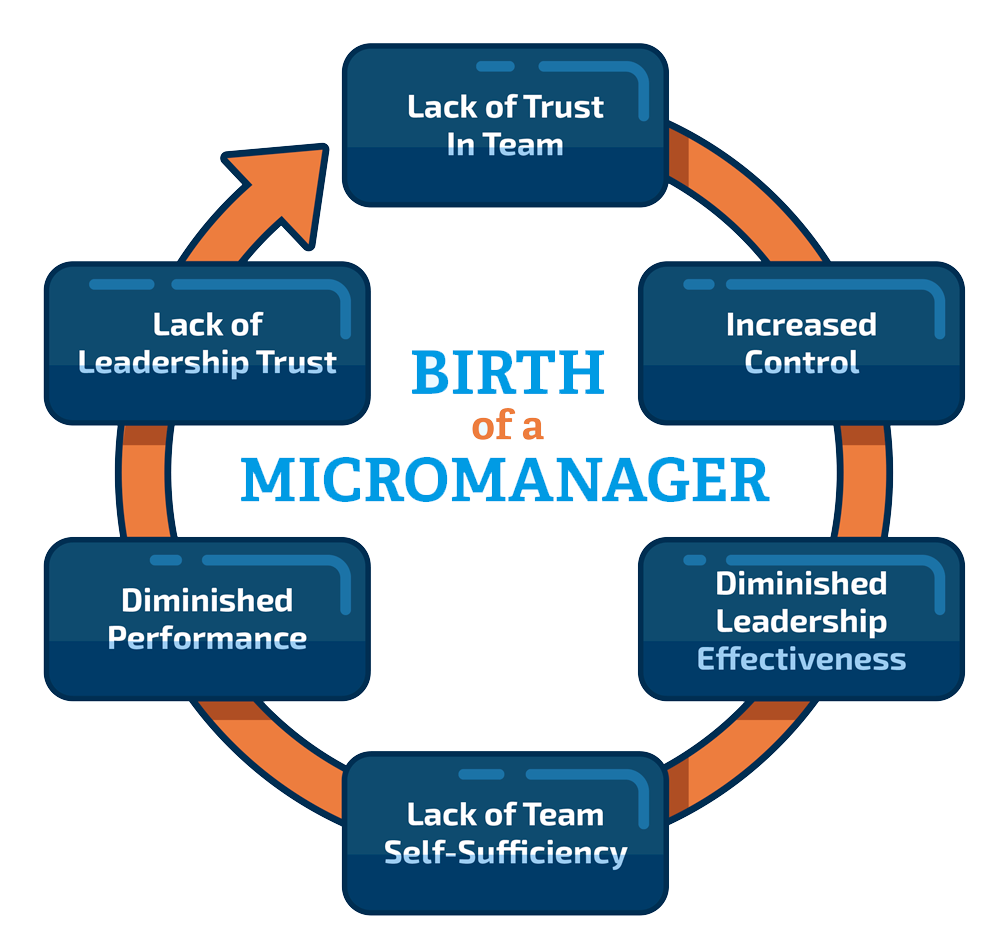An earlier post discussed what events in sales are negatively impacting the mental health of salespeople the most. But – what about sales manager Mental Health?
A closer look at the survey data is showing that the impact of various trigger events within sales will vary between sales roles.
Respondents to the survey were asked to select the option that best described their role:
- Business Development/ New Business Acquisition
- Account Management
- Customer Success
- Sales Management/Leader
- Hybrid Role (balanced combination of two types of roles)
Regardless of the sales role, Micromanagement by leadership and Missing Target were consistently ranked #1 and #2 for having the greatest negative impact on mental health decline in sales.
When we look at sales related events outside of these top two – things start to get interesting.
This is particularly true when we look at Sales Leaders and the mental health challenges they face motivating their team to perform at a high level.
Survey Results for Sales Manager Mental Health
As we stressed in the last post, organizations need to start prioritizing how they can reduce micromanagement within their sales teams.
| Type of Event | Percentage of Responses by Sales Leaders |
| Micromanagement By Leadership | 52.94% |
| Missing Target | 52.94% |
| Working With unmotivated Salespeople | 44.12% |
| Deal Falling Through Last Minute | 26.47% |
| Deal Getting Pushed Back | 23.53% |
| Compensation or Role Responsibility Changes | 14.71% |
| Dealing With Upset Client | 14.71% |
| Stale Pipeline | 14.71% |
| Customer Churn | 11.76% |
| Buyer/Customer Ghosting | 11.76% |
| Inter-Sales Team Politics | 11.76% |
| Restarting Back at “0” | 8.82% |
| Meeting Daily Metrics | 5.88% |
| Rejection | 5.88% |
| Meeting With Manager To Review Performance | 2.94% |
| Cold Calling | 0.00% |
At an individual contributor level and as a sales leader, micromanaging negatively impacts sales mental health the most. Micromanagement leads to increased levels of presenteeism and absenteeism, that can dramatically reduce sales team performance.
Another substantial finding is – 44% of sales leaders listed “working with unmotivated salespeople” as negatively impacting their mental health the most.
This is a big percentage.
Almost half of all sales leaders are dealing with unmotivated sales reps and suffering because of it.
Sales Manager Mental Health: So what could be going on here?
To start – here are some possible reasons a sales rep could become unmotivated:
- There is a leadership gap and the sales leader lacks the skills to motivate their team.
- The sales leader lacks trust and is micromanaging their team. The data shows this can decline sales rep mental health to a point where they are unmotivated.
- The sales leader is demotivated (ex: being micromanaged themselves, missed target) and struggling with their own mental health. These emotions are then transmitted to the team making them unmotivated.
- Mental health has declined to a point where sales reps are not motivated.
- Sales reps lack the skills to perform and as a result are unmotivated.
- The sales reps simply can’t do the job and are therefore unmotivated.
Let’s address these points one by one starting with the last.
Reason #1 – The sales reps simply can’t do the job and are therefore unmotivated.
It is very unlikely the sales rep is unmotivated, because they can’t do the job.
As a sales leader you can determine this with a simple mental test outlined by Andy Grove in his book High Output Management. Ask yourself this question:
If the sales rep’s life depended on making sales, could they do it?
When the answer is yes, that salesperson is not motivated;
If the answer is no, then they are not capable.
With the right confidence and enthusiasm, even an unskilled salesperson or fresh grad can be successful. By sheer effort alone, enough numbers can be dialed to a point where a salesperson can get lucky and make a sale.
Organizations invest thousands of dollars and hundreds of hours into hiring the right people. It’s unlikely that truly incapable salespeople or poor fit salespeople are being hired.
Something changes sometime between when they get hired and when they become unmotivated.
So what is it?
Reason # 2 – Sales reps lack the skills to perform and as a result are unmotivated.
According to Maslow’s theory of motivation, Self-Actualization is the highest level of motivation that can be achieved by an individual.
Self-actualization within sales is when a sales rep begins to realize their own potential, seeks self-fulfillment and personal growth within sales. Sales is no longer viewed as a “job,” but a craft that they want to perfect.
Sales coaching and training is crucial to helping sales reps realize their potential and advance their skills. As a sales leader it’s important to continuously arm and re-arm sales reps with new ways to sell. Innovative ways to level jump their skills, experience personal growth and realize their potential.
This also requires providing visibility into improvements in performance. It’s easy for sales reps to stay motivated if they can see their efforts paying off. How investing time into training, learning and practice is leading to increased conversions on calls made to demos booked or demos complete to deals closed.
Very few salespeople are pushed by sales leaders to change their perspective on sales and reach self-actualization. Most people working in sales view their role as just a job. This leads to limited growth and inconsistent sales rep motivation.
Sales is a craft that takes the same determination as learning a sport or playing an instrument to master.
Money as a Motivator
One side note about money. Money can be a tremendous motivator for some salespeople and less so for others. It’s important to understand if your sales rep views money as a means to achieve something or a measure of success amongst peers.
A sales rep motivated to make money and buy a condo (means to an end) can quickly become unmotivated when they reach their goal and buy the condo. A finite goal that can be reached and create a gap in motivation until the next desire is determined.
Pushing these sales reps to reach self-actualization will help reduce motivation inconsistencies, which are common in sales.
A sales rep who uses money to measure their personal success and social status is functioning at a much higher level of motivation. They’re chasing an infinite amount of money, because more money equals greater success, status and self-worth.
Often these types of sales reps require less attention and have internalized a burning desire to make more money.
Reason # 3 – Mental health has declined to a point where sales reps are not motivated.
As a sales leader – do you know what sales reps are struggling with their mental health?
Sales can be a mental health nightmare for even the most tenured sales veterans. Declining mental health can lead to depression, stress, anxiety, presenteesim, absenteesim and becoming unmotivated in the workplace.
As a sales leader it’s crucial to start creating a safe environment to talk about mental health. This will help keep the sales team motivated and protect your own mental health.
Start by opening up about your own mental health struggles within sales or include a session on Mental Health during new hire on-boarding. This sets the expectation that it’s ok to talk about mental health in the workplace.
Carving out time to discuss mental health in weekly 1 on 1s can also be helpful. Use this time to check in on each others’ mental health.
It can be as simple as starting with “Are you ok?”
Reason # 4 – The sales leader is demotivated and struggling with their own mental health. These emotions are transmitting to the team, making them unmotivated.
Emotions are contagious which means sales manager mental health is important.
Emotional contagion is the phenomenon of having one person’s emotions and related behaviors, directly trigger similar emotions and behaviours in other people.
This phenomenon is powerful when selling to customers. If a sales rep is confident, happy and enthusiastic, there is a good chance the customer will feel the same way about the product. The opposite is true for the customer if the sales rep is tired, depressed or lacks confidence.
Emotional contagion can also occur between sales reps and sales leaders. As a sales leader it’s your job to make sure it’s having a positive impact on the team.
Creating that electricity on the sales floor when the sales team is firing on all cylinders.
This is a hard task for any sales sales leader. It’s hard to be enthusiastic and high energy all of the time. Simply put, sh*t happens. At work and in your personal life that can be hard to control.
Practicing mindfulness plays a key role in reducing the negative impact of emotional contagion. Mindfulness helps build awareness around thoughts, feelings and actions during stressful situations.
It makes you more aware when declines in your own mental health occur. So you can take a minute and reach a better headspace, before your emotions transmit onto the team.
As a sales leader it’s important to take responsibility for your own mental health. Otherwise, an unmotivated leader can quickly lead to an unmotivated.
Reason #5 – The sales leader lacks trust and micromanaging their team. The data shows this can decline sales rep mental health to a point where they are unmotivated.
As discussed earlier – 50% of sales reps listed micromanagement as the number one thing that negatively impacts their mental health.
Therefore, micromanagement by a sales leader can lead to declining mental health, which results in unmotivated sales reps.
The image below, created by SherpaDesk highlights the evolution of micromanagement. Most importantly – the cycle starts and ends with a breakdown of trust between leader and team.

According to Five Dysfunctions of a Team, absence of trust stems from an unwillingness to be vulnerable within the group. Particularly within sales, this is challenging when your career trajectory is tied to individual performance.
“It requires team members to make themselves vulnerable to one another, and be confident that their respective vulnerabilities will not be used against them. The vulnerabilities I’m referring to include weakness, skill deficiencies, interpersonal shortcomings, mistakes and requests for help.” – Five Dysfunctions of a Team
Talking about mental health can be added to this list of vulnerabilities.
A future post will look at tips to avoid micromanaging in sales reps, but start building trust with your reps by sharing your mental health story. Everyone working in sales has struggled mentally at some point during their career. The more personal, honest, real and vulnerable the better.
Building more trust with sales reps will create a supportive mental health workplace culture. As a leader your vulnerability will be rewarded with more open communication.
More honest conversations will lead to a better understanding of sales rep motivations and reduce the need to micromanage.
Reason #6 – There is a leadership gap and the sales leader lacks the skills to motivate their team.
There is a common misconception that a top sales rep will make a great sales leader. This assumption can be disastrous for an emerging leader and the skills they need to be successful.
Organizations need to become more aware of leadership gaps when promoting sales reps to managers. This includes offering more training around how to motivate salespeople.
If they don’t – this can lead to extreme consequences of mental health decline and toxic cultures. As is the case in this example:
Top sales rep is promoted to manager. They have not been taught nor possess the skills to motivate their team. Their sales team becomes unmotivated. The new manager’s mental health declines and becomes unmotivated. Micromanagement increases. Sales rep mental health declines. Target is missed. Blaming others begins. Toxic culture sets in.
Supporting new sales leaders with motivation training will keep sales reps motivated and limit declines in sales team mental health.
Closing Best Practices for Sales Leader and Sales Manager Mental Health
In closing, here are the top 6 take-aways to help keep sales reps motivated and improve sales leader and sales manager mental health:
- Determine if the sales rep is unmotivated or incapable. Most of the time the sales rep will be unmotivated, not incapable.
- Train and coach the sales reps to achieve self-actualization in sales. This will achieve peak energy levels and consistent motivation.
- Use weekly 1 on 1s to checkin on each others mental health and well-being. Provide a session on sales mental health during on-boarding.
- Create an environment where it’s ok to be vulnerable and discuss mental health. This can be done by sharing your own personal experiences with mental health.
- Take responsibility for your own mental health and emotions through mindfulness to limit the contagiousness of negative emotions.
- Provide training to sales leaders on how to motivate their sales team. Don’t assume they know how to do it.
As we continue to explore mental health within sales, more content will be created on how sales leaders can motivate their team.
In the meantime, if this article has been helpful, please share it within your organization and on LinkedIn. For more best practices on sales mental health subscribe to our newsletter below.
About The Author
Jeff Riseley is currently the Founder of the Sales Health Alliance and Mental Health Advocate. With over a decade of sales experience – Jeff understands the importance of Mental Health in achieving peak sales performance.
Jeff combines his sales (Sales Knowledge Institute) and Mental Health expertise to improve sales performance through a mix of sales mentorship and mental health best practices. His strategies have helped sales teams improve their sales process, while helping them become more motivated, resilient and better equipped to tackle stressful events within sales.
He is currently delivering these strategies through on-site workshops, coaching and speaking engagements. To explore working with Jeff contact him at [email protected]





